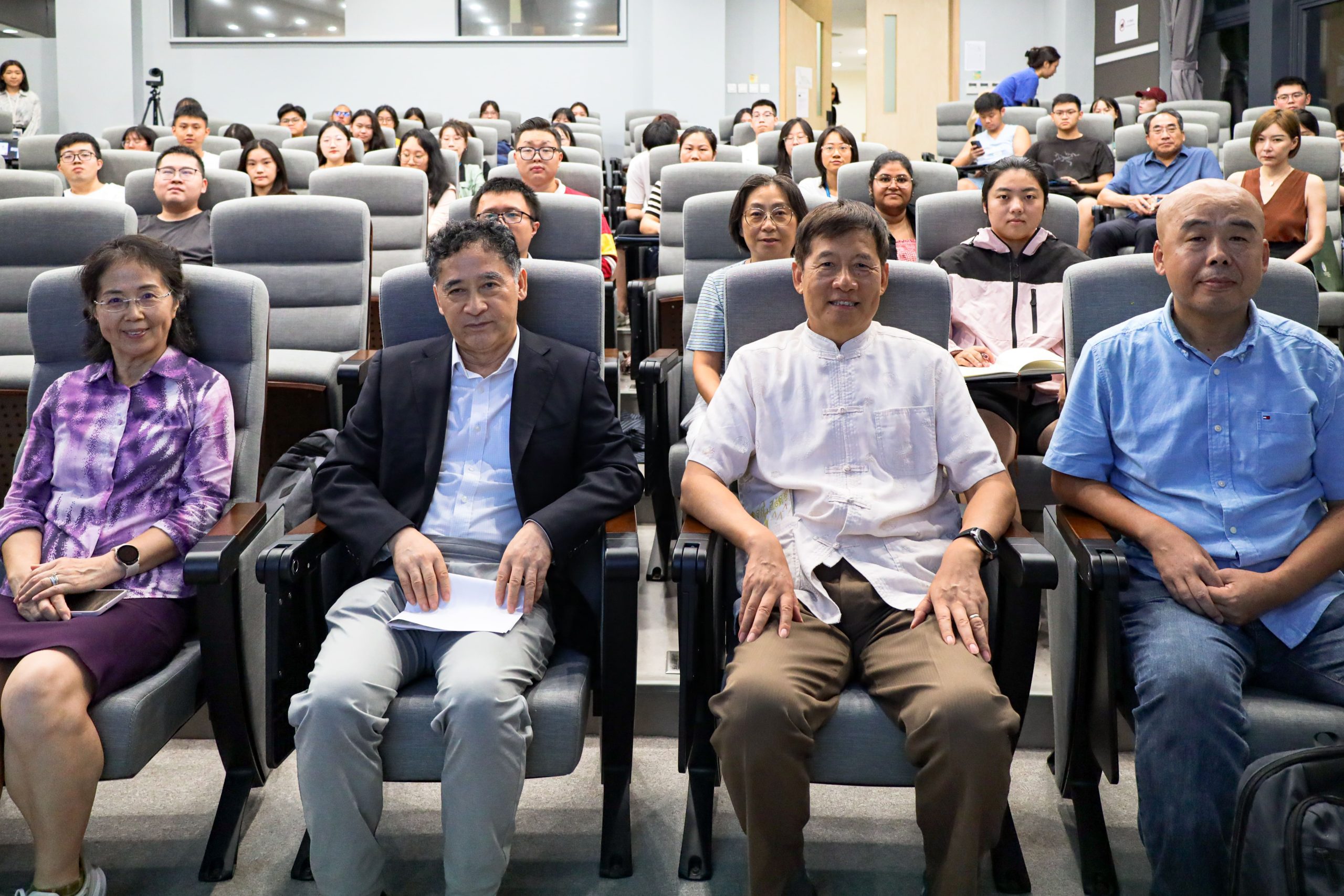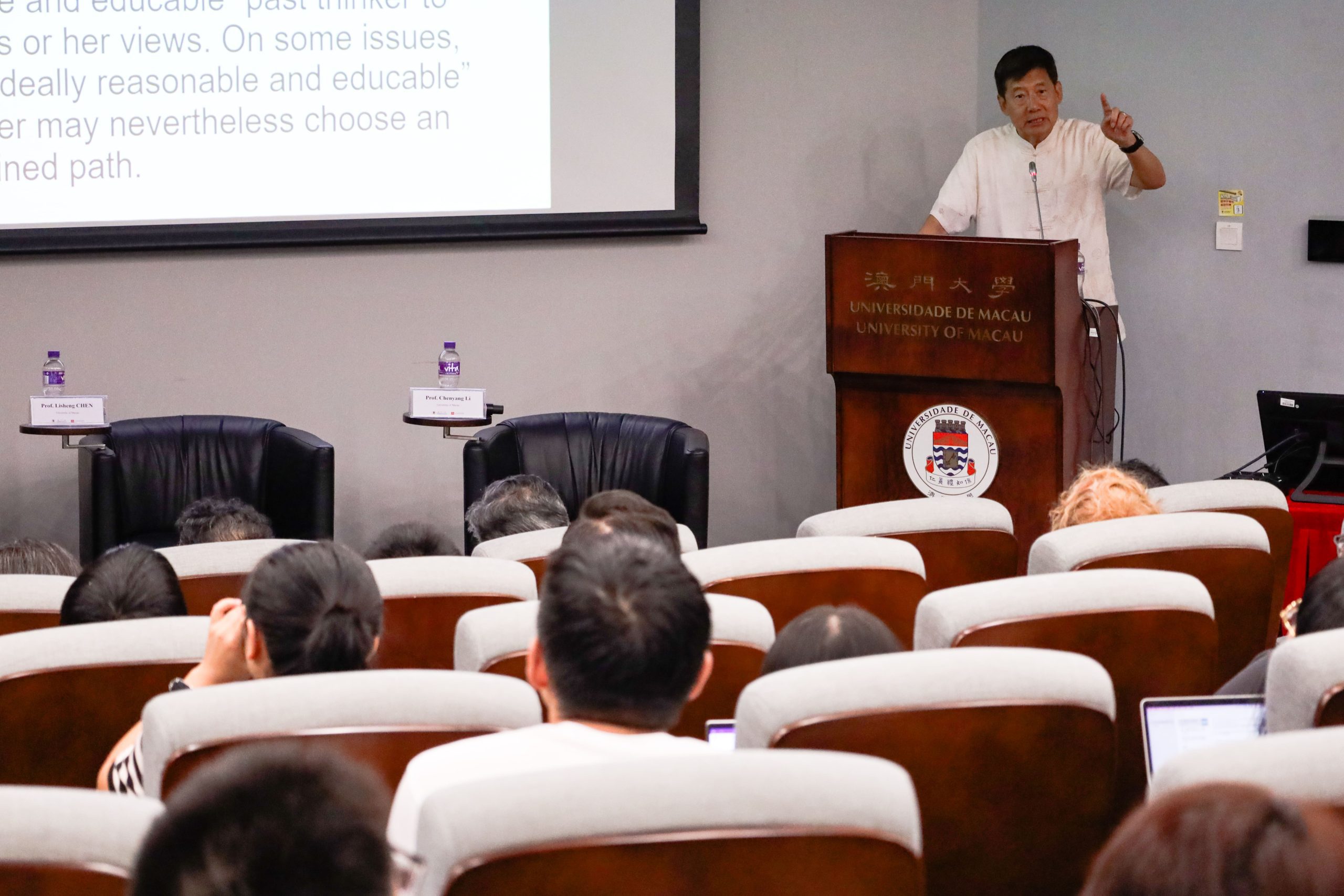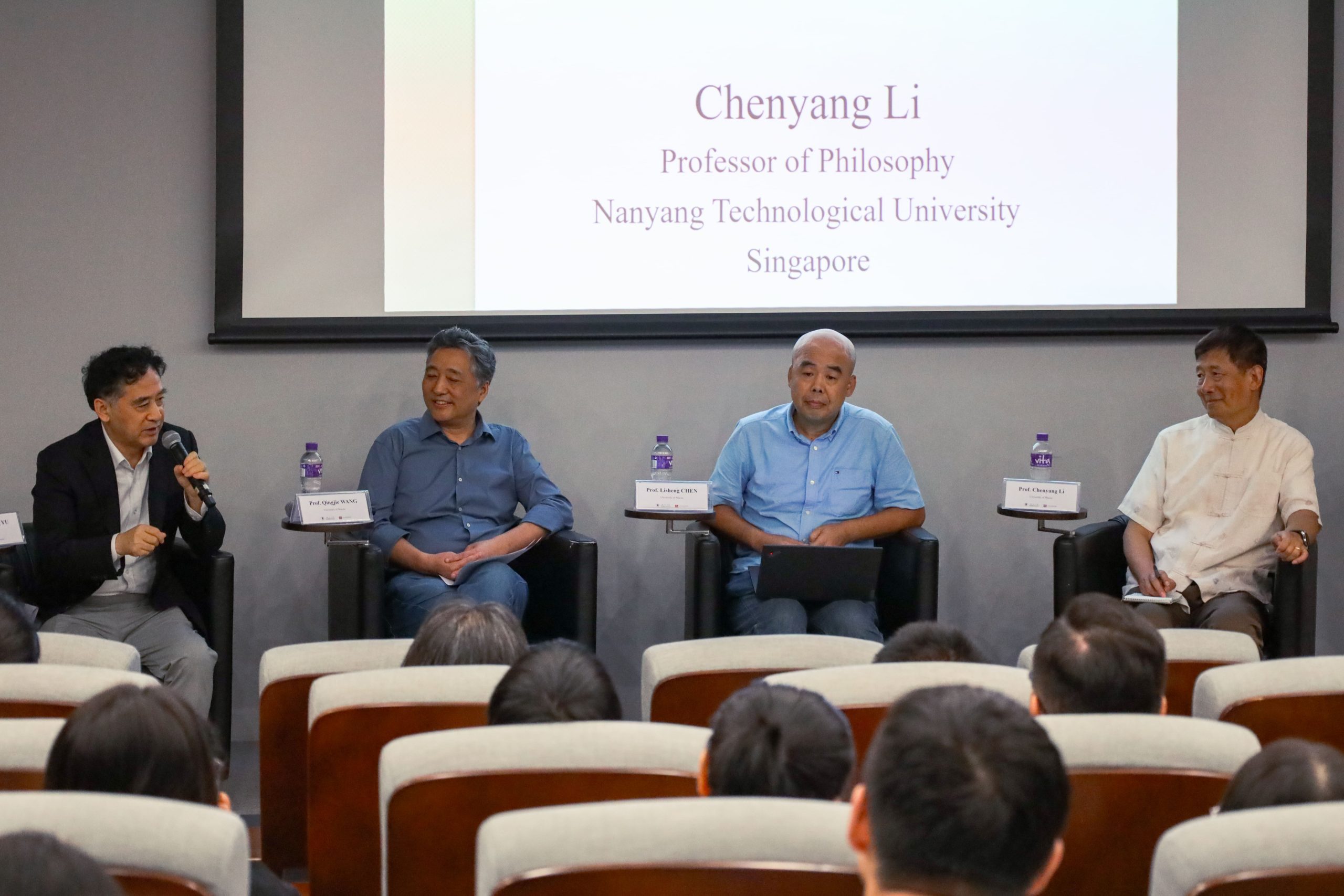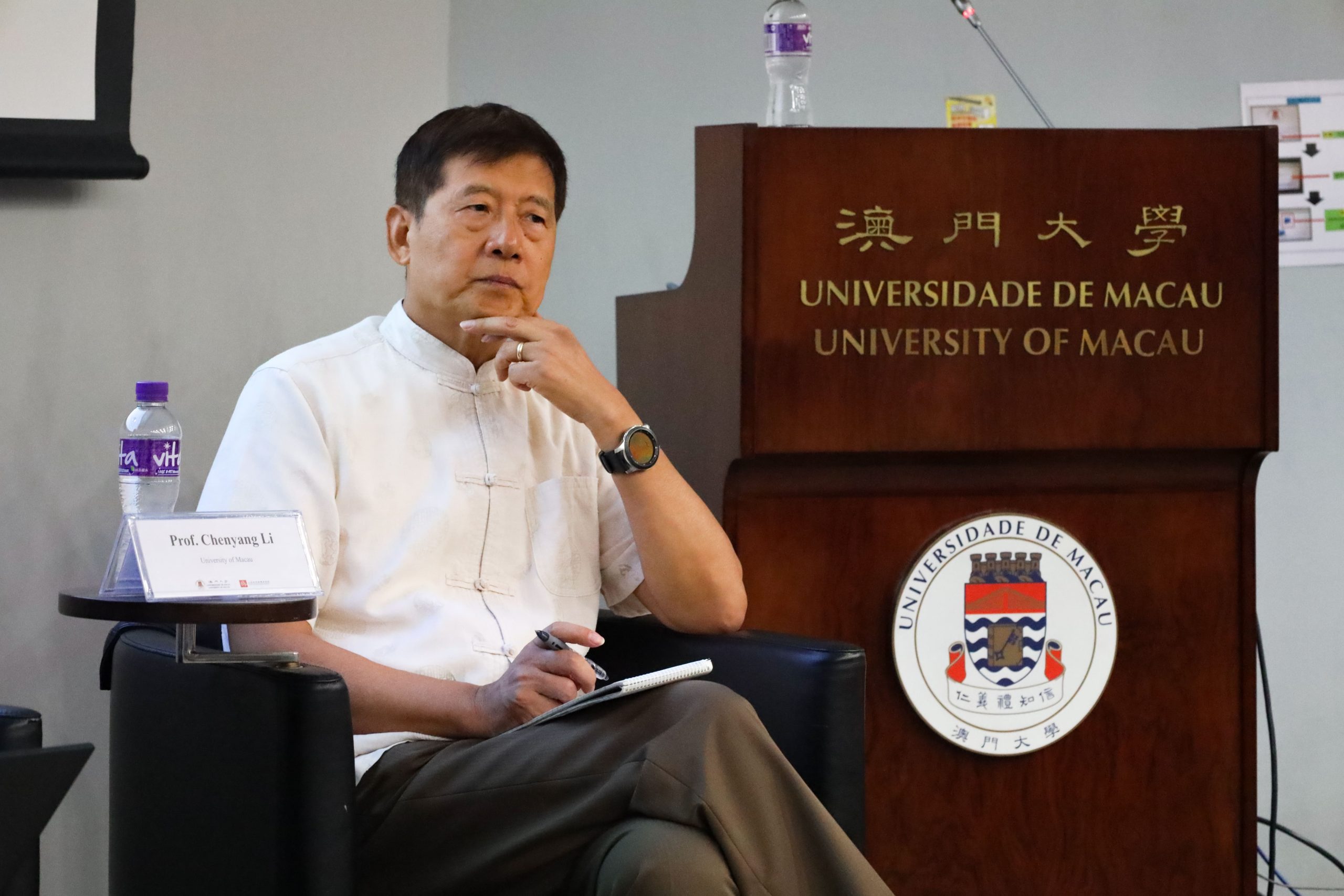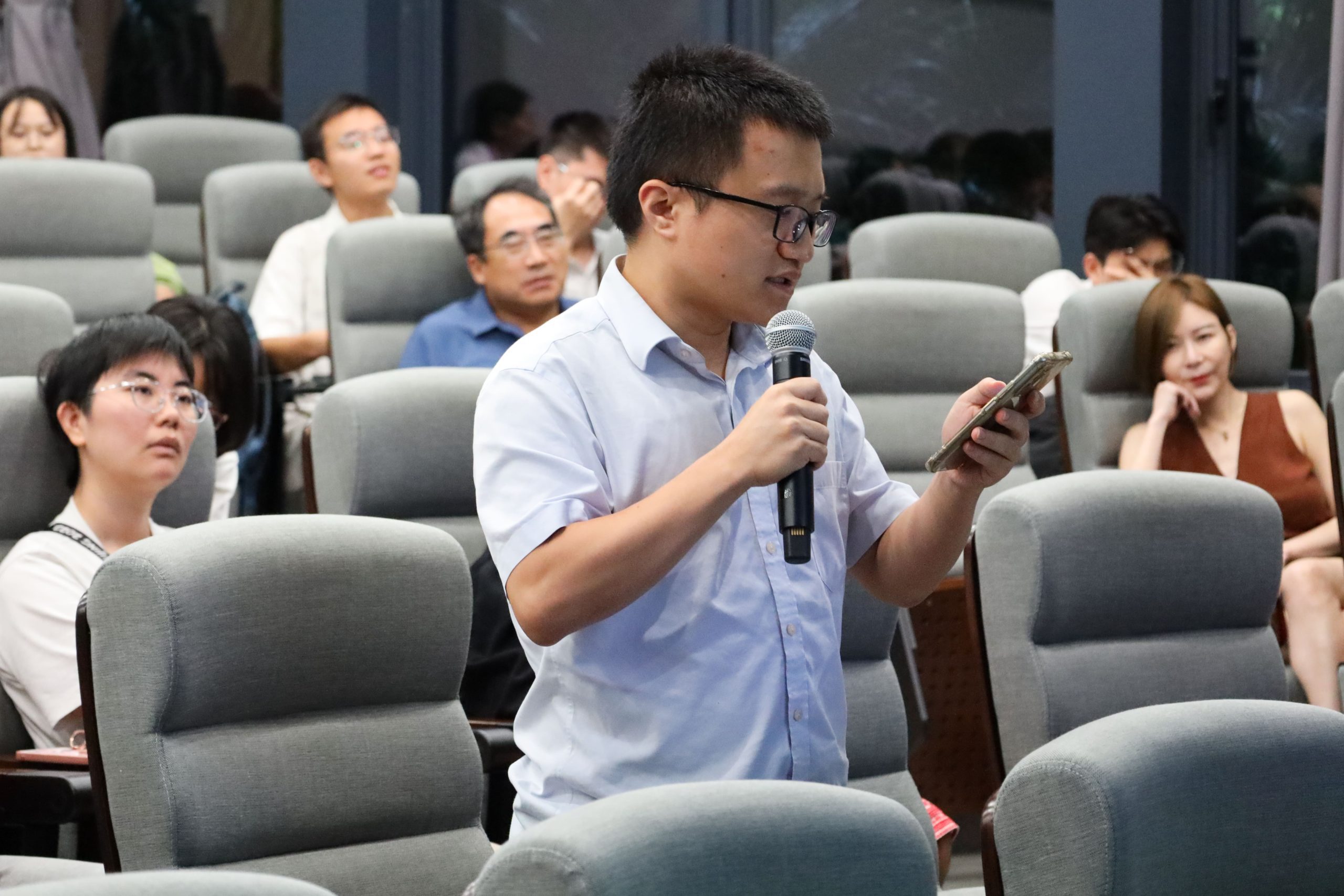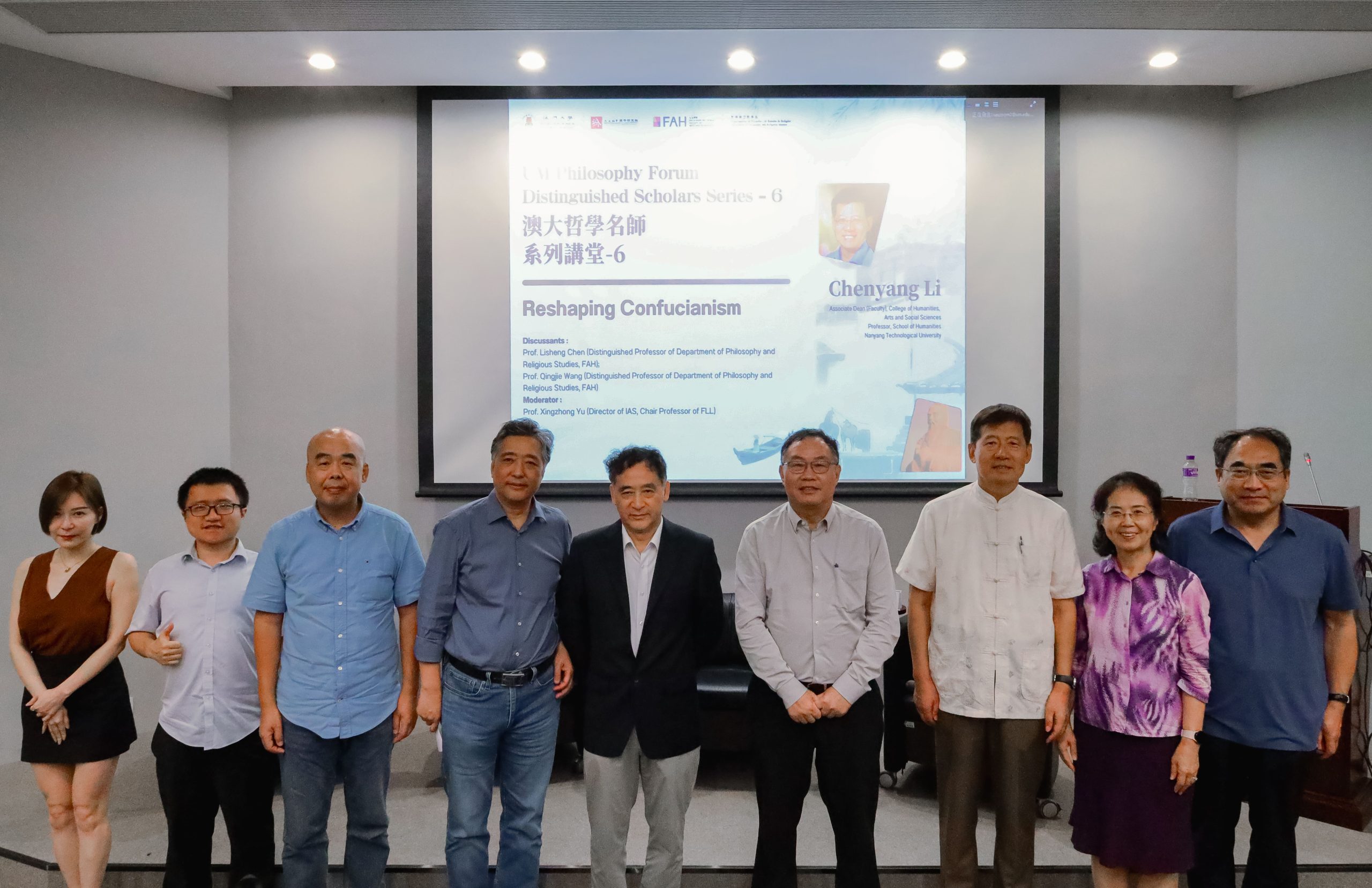【IAS&FAH-DPHIL】The UM Philosophy Forum Distinguished Scholars Series – 6 was successfully held
【高研院&人文學院哲學與宗教學系】澳大哲學名師系列講堂 – 6成功舉行

9月23日,由澳門大學人文社科高等研究院(IAS)和人文學院(FAH)哲學與宗教學系共同舉辦的澳大哲學名師系列講堂第六講於崇文樓演講廳成功舉行。此次講座主題為“重構儒學”,由南洋理工大學的李晨陽教授擔任主講人,人文學院哲學與宗教學系陳立勝教授和王慶節教授擔任與談人,高研院院長、法學院講座教授於興中教授擔任主持人。
講座伊始,李教授從歷史和發展的角度,對儒學和孔子主義這兩個概念進行了解釋和區分。他認為,儒學不僅包括孔子的思想,還有大量其他思想家的主張,同時儒學也隨著不斷變化的政治社會環境而不斷被定義和重新定義。隨後,李教授介基於Richard Rorty所提出的歷史重構、理性重構這兩個概念,提出了研究儒學的兩種重要方法:歷史重構和哲學重構,並對這兩種重要方法論進行了解釋和闡述。而後,李教授又分別介紹了仁愛原則、人道原則以及進步人道原則,他特別強調在進步人道原則下,我們不僅要按照人道原則將古代思想家置於其自身的歷史環境中來理解他們,而且還要在其整體哲學傾向的基礎上拓展他們的思想,以回應現代人的感性認識。最後,李教授分享了他對於比較哲學的理解。比較哲學通過比較和對比不同的哲學傳統來學習其他文化傳統、解決哲學問題、產生新的見解並發展新的理論,它包括但不限於跨文化比較工作。
在討論環節,陳立勝教授則是提出,李教授的研究是一種自覺的重構儒學,為我們提供了新的方法論,為中國哲學的世界化做出了貢獻。王慶節教授也分享了他對於儒學以及其他理論總是重塑與被重塑這一現象的看法。教授們還針對儒學與現代性的關係、何為進步、進步儒學的發展極限、儒學與AI等問題,和在場的學者和同學們進行了熱情的討論。
此次活動吸引了諸多學者與同學參與,引發了大家對於儒學問題的積極探討和深刻思考。高研院也將繼續舉辦高品質的學術活動,為深化學術交流、拓寬知識視野提供更多機會。
The UM Philosophy Forum Distinguished Scholars Series 6, co-organized by the Institute of Advanced Studies in Humanities and Social Sciences (IAS) and the Department of Philosophy and Religious Studies of the Faculty of Arts and Humanities (FAH), was successfully held on 23 September, at the Lecture Hall in Cultural Building. Professor Chenyang Li from Nanyang Technological University delivered a wonderful speech on “Reshaping Confucianism”. Professor Lisheng Chen and Professor Qingjie Wang from the Department of Philosophy and Religious Studies, FAH, were invited as the discussants, and Professor Xingzhong Yu, Director of IAS and Chair Professor of FLL was invited as the moderator.
At the beginning of the lecture, Professor Li explained and differentiated the concepts of Confucianism and Confucius’ism from a historical and developmental perspective. He argued that Confucianism includes not only the ideas of Confucius but also the claims of many other thinkers and that Confucianism has been continuously defined and redefined in response to the changing political and social context of China’s history. Subsequently, based on the concepts of historical reconstruction and rational reconstruction put forward by Richard Rorty, Professor Li proposed two important methodologies for the study of Confucianism: historical reconstruction and philosophical reconstruction, and explained and elaborated on these two important methodologies. And then, Professor Li introduced the principle of charity, the principle of humanity, and the principle of progressive humanity, respectively. He especially emphasised that under the principle of progressive humanity, we should not only make sense of ancient thinkers by placing them under their historical circumstances as prescribed by the principle of humanity but also expand their ideas based on their overall philosophical dispositions in response to modern sensibilities. Finally, Professor Li shared his understanding of comparative philosophy. Comparative philosophy philosophizes through comparison and contrast across philosophical traditions to learn about other cultural traditions, solve philosophical problems, generate new insights, and develop new theories. It includes, but is not limited to, cross-cultural comparative work.
In the discussion session, Professor Lisheng Chen, on the other hand, suggested that Professor Li’s research is a conscious reconstruction of Confucianism, which provides us with a new methodology and contributes to the globalisation of Chinese philosophy. Professor Qingjie Wang also shared his views on the phenomenon that Confucianism, as well as other theories, are always reshaping and being reshaped. The professors also had enthusiastic discussions with the scholars and students in the audience on the relationship between Confucianism and modernity, how to define ‘progressive’, the limits of progressive Confucianism, Confucianism and AI, and other issues.
The event attracted the participation of many scholars and students and triggered active discussion and deep thinking about Confucianism. IAS will continue to hold high-quality academic activities to provide more opportunities for deepening academic exchanges and broadening intellectual horizons.

